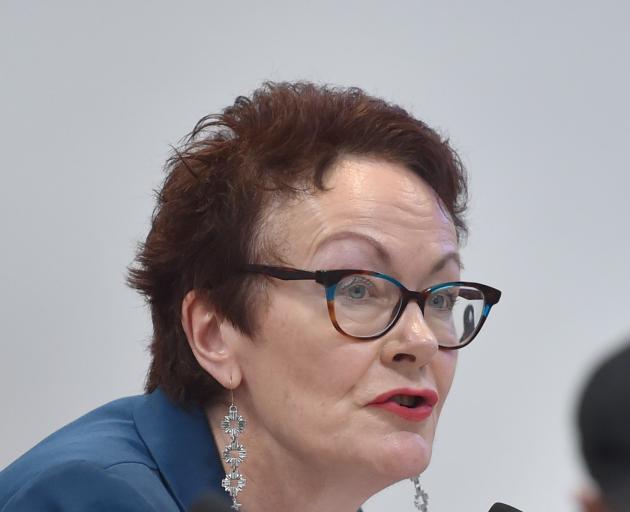The push to sell Aurora Energy has collapsed and the Dunedin City Council will now confront a difficult path ahead.
Growing debt for the council and its group of companies will require some managing while pressure on rates remains.
Before yesterday’s decisive 13-2 vote to keep Aurora, Dunedin Mayor Jules Radich provided indications of what would have to be faced.
"If we retain Aurora ... we simply cannot have high council operational and capital expenditure without rates rises ... in the order of 10% year on year," he said.
The mayor outlined a choice.
"Sell and set ourselves up for a sustainable and safer future with a degree of comfort.
"Or retain and maintain our strategic position, keep faith with our residents and tighten our belts to have [a] sustainable future, but with a dose of discomfort."
Mr Radich had been sympathetic to a sale, but the resolution to keep Aurora was put up by him.
This was endorsed by Cr Brent Weatherall "under sufferance".
The mayor said feedback from residents had been clear.

Deputy mayor Cherry Lucas, who voted against retaining Aurora, agreed with the way the mayor had framed the issue as the council looked towards drafting the 2025-34 long-term plan.
"I have already been saying we can’t continue increasing rates significantly year on year," she said.
"I have already signalled the need to cut expenditure and with [yesterday’s Aurora vote] I expect all councillors to support me in making budget cuts across all areas."
Cr Sophie Barker said she agreed belts would have to be tightened.
Selling Aurora would have been like applying a plaster on the council, she said.
"We have to look at our patient’s long-term health.
"It might need to be a dose of harsh reality, rather than just discomfort."
Cr Barker said it was obvious a lot of necessary and expensive capital work would need to be done.
Going through operational expenses with a fine-tooth comb would be key, she said.

Aurora distributes electricity to Dunedin, Central Otago, Wānaka and Queenstown.
Any sale price had been tipped to comfortably exceed $1 billion.
This would have allowed the council to set up a diversified fund worth hundreds of millions of dollars, providing an alternative revenue stream to rates.
A proposal to sell was pitched to the public in March, a hearing was held in May, council workshops were run and financial scenarios explored.
Public opposition to a sale was emphatic and councillor after councillor said yesterday the people had spoken and the message had been received loud and clear.
Many submitters pointed to the company’s prospects of growing in value and its perceived strategic worth as an asset in public ownership.
Councillors also noted its profitability, although this had not in recent years translated into dividends.
Cr David Benson-Pope said had the public voice not been so clearly articulated, the outcome of the vote might have been different.
He was also one councillor who raised doubt about the reliability of returns that might come from a diversified fund.

He argued Dunedin ratepayers could not afford to finance increasing debt to keep Aurora going and meet Central Otago’s expansion needs.
"In my view both Mayor Radich and Cr Weatherall have caved in to under-informed public pressure and vested interests by voting against the sale," he said.
"Elected representatives are charged with making decisions for the benefit of the whole city, rather than yielding to public pressure with an eye on the election due next year."
Cr Bill Acklin said the short to medium term would be difficult to manage.
"It’s going to mean cutting costs or service levels everywhere possible to keep rates increases as moderate as we can," he said.
"The submitters through the consultation period told us they are happy to weather rates increases to retain Aurora."
Cr Kevin Gilbert said microscopes would have to be brought in to "go through the way we operate, improve what we need to, consider other ways of doing things and have those hard or uncomfortable conversations".
"That is what I expect we’ll be doing during the nine-year plan."












